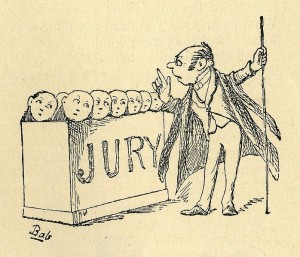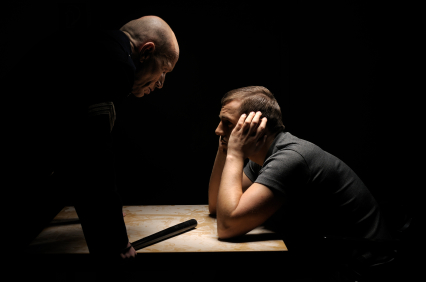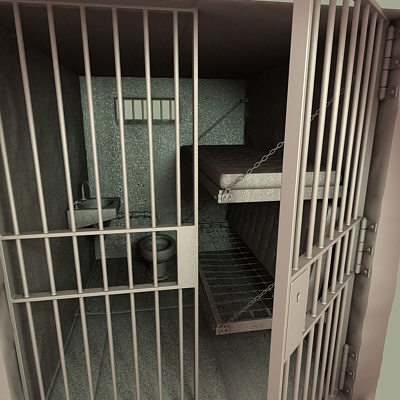BKV case: „Jewish, clean it up!”
The BKV
case continued with the hearing of H. Éva defendant, former press person of
Hagyó Miklós on the Kecskemét Court. H. Éva denied her guiltiness in every
count. According to the prosecution, H. Éva is accused with the charge of
ordering unneeded BKV contracts, and according to the indictment she got her
salary without actual work. On the hearing H. Éva listed long why the
accusation against her is absurd. Besides, they accused her in dates in a few times
when H. Éva didn’t even work with Hagyó Miklós, moreover according to the
prosecution she ordered people in the name of Hagyó whom knew the politician
long before she know him.
H. Éva
reported in details about the circumstances of her arrest and her pretrial
detention. She reminded that months after her incrimination she was arrested
the same time as Hagyó Miklós and her pretrial detention was ordered by Szívós
Mária, who now is the main Constitutional Court judge.
„Then the
pretrial detention came, and because of my religion they made station
house/pen/lockup check in every week”- said it brokenly H. Éva in front of the
court. „They made comments on my books, they spilt rubbish on the middle of my pen’s
floor, mix it with my personal stuffs, for „Jewish, clean it up””. They said that if
the rabbi is coming to visit her henceforward, within the legal facilities,
they cannot protect me from "falling down" from by bed and hurt
myself, but I still undertake my religion/belief.
(Source: hirado.hu)
"The
jail doctors tried to - without my knowledge - make me take drugs. They started
to give me Rivotril medicine that I didn't know about, I didn't require any narcotized,
drugs, and moreover I objected it on big tone when they offered me. I saw how
the people look like there whom they redundantize (make her go down physically
and spiritually), I wanted to get back to my family with clean/undamaged mind.
It happened that there was 54 Celsius in the pen which was 6m2 which was for 4 people and they closed the only recess which could have
give us air, the recess what they used for giving them food and I could list
more. „- said the former press person of Hagyó.
"For
questioning they took me in handcuffs and fetter, like they did it with the
murderers- and without treat"- it made wounds on my body. Because of the
unduly tight delimitation in my movement, I was falling and getting up all the
time during the transport. One time they even had to take me to the causality
surgery because I hit my head into the curbside during the falling in fetter.
When I brought it up to the guardian who walked with me he said that I have to
shut up, because if I don’t he will see this like she attacked him and then he
can legally shoot her. I want to note that I never had to be afraid from the
people in pretrial detention or from the prisoners. During this I lost 26 kg -
she said.
H.
Éva in her testimony gave an explanation
of her renounced investigation testimony: "when we arrived into the
official room at the prosecution, then I told while I was crying to the
controller of the investigation – former leader – that I want to go home to my
son, to my family, I want to see my kid after 4 months. However, believe me, I
really cannot say anything against Hagyó Miklós what I can support with
evidence, or it would be true. For this, one of the investigators from the BRFK
(Headquarter Police Station of Budapest) whom they got loan from their
organization to the main prosecution for the further investigation process, he
said that then she can go back and they will meet on the 6months meeting. For
this I started to cry even more, then the prosecutor who was there asked me, if
I cannot say anything against Hagyó then do I know Puch László? As they know I
know him. I said yes, I know him, but how is he related to the BKV case? They
said he is not, but they interested in him, if I tell everything what I know about
him then it’s enough for them and then I can go home to my family."
For
the ending of her testimony H. Éva read out loud a letter what was his father’s
last letter what he sent him to her while she was in jail, since that her
father died in a heart attack. A few defendant and their lawyers heard this
letter out with crying. The judge before the again continuance of the hearing
said that she should be aware of the circumstances for the false accusation –
referred to the description about her coercion – however the former press person
of Hagyó maintained what she said earlier. The BKV case is continuing with the
review of H. Éva’s – partly renounced – investigation testimony on the
Kecskemét Court.
Source: http://www.nepszava.hu/articles/article.php?id=614879
Original:
BKV-per:
„Takaríts, zsidó”
H. Éva vádlottnak, Hagyó Miklós egykori sajtósának
vallomástételével folytatódott a BKV-per tárgyalása csütörtökön, a Kecskeméti
Törvényszéken. H. Éva tagadta bűnösségét minden vádpontban. H. Évát több, az
ügyészség szerint szükségtelen BKV-s szerződés megkötésére való utasítás
adásával vádolják, ill. a vádirat szerint a sajtós valós munkavégzés nélkül
vette fel fizetését. A tárgyaláson H. Éva hosszan sorolta, hogy miért
képtelenség az ellene felhozott vád. Egyebek mellett olyan időpontokat jelöltek
meg több esetben, amikor H. Éva még együtt sem dolgozott Hagyó Miklóssal,
illetve az ügyészség szerint olyan embereknek adott utasításokat Hagyó nevében,
akik nála jóval régebb óta ismerték a politikust.
H. Éva részletesen beszámolt őrizetbe vétele és előzetes letartóztatása
körülményeiről. Emlékeztetett rá, hogy meggyanúsítása után hónapokkal, Hagyó
Miklóssal egy időben vették őrizetbe, és előzetes letartóztatását az azóta
alkotmánybíróvá emelt Szívós Mária rendelte el.
„Aztán jött az előzetes letartóztatás, ami alatt vallásom
miatt hetente tartottak zárka ellenőrzést” – mondta megtörten H. Éva a bíróság
előtt. „Megjegyzéseket tettek a könyveimre, öntötték a szemetet a zárka
közepére, belekeverve a személyes dolgaimat, hogy „takaríts zsidó”. Mondták,
hogy ha továbbra is bejön hozzám a rabbi, a törvényes lehetőségeken belül, nem
tudnak esetleg megóvni attól, hogy „leesek” az ágyról és megüssem magam, de
mégis vállaltam a hitemet.”
(Forrás: hirado.hu)
„A börtönorvosok próbáltak – a tudtom nélkül –
bekábítószerezni. Hiszen úgy kezdtek el adagolni Rivotril gyógyszert, hogy
arról nem tudtam, nem igényeltem semmilyen bódító, kábító gyógyszert, sőt
hangsúlyosan elleneztem, amikor felajánlották. Láttam, hogy néznek ki azok,
akiket leszedáltak ott, én ép elmével szerettem volna hazakerülni a családomhoz.
Előfordult, hogy 54 C fok volt a 4 fős 6 m2-es zárkában, ránk csukták az
egyetlen levegőt szolgáltató nyílást, az étkezéshez használt kisablakot a
zárkaajtón és még sorolhatnám tovább.” – fogalmazott Hagyó egykori sajtósa.
„Kihallgatásokra teljes bilincsben vittek, mint a
gyilkosokat ezzel tályogos – és kezeletlen - sebeket okozva a testemet.
Mozgásom indokolatlanul szoros korlátozása miatt, estem - keltem a szállítások
közben. Egy alkalommal annyira, hogy baleseti sebészetre is kiszállítottak, mert
a járdaszegélybe vertem be a fejemet esés közben a lábbilincsben. Amikor ezt
szóvá tettem a kísérő BV őrnek, akkor azt válaszolta kussoljak, mert úgy veszi
megtámadtam és akkor törvényesen rám is lőhet.) Szeretném itt megjegyezni, hogy
sosem az elítéltektől és az előzetes letartoztatásban lévő raboktól kellett
tartanom. Ez alatt 26 kilót fogytam.” – mondta.
H. Éva vallomásában korábbi, nyomozati szakban tett, majd
később visszavont állításaira is magyarázatot adott: „Amikor megjelentünk a
kihallgató szobában az ügyészségen, akkor a nyomozást felügyelő – korábban
vezető – ügyésznek sírva mondtam, hogy haza akarok menni a fiamhoz a
családomhoz, látni szeretném közel 4 hónap után a gyerekemet. Viszont higgyék
el, hogy tényleg nem tudok Hagyó Miklósra olyan terhelő vallomást tenni, amit
bizonyítékokkal alá is tudnék támasztani, vagy ténylegesen igaz is lenne. Azt
mondta erre, ha jól emlékszem a BRFK-s nyomozók egyike, akiket kölcsön adott a
saját szervezetük a KNY Főügyészségnek a további nyomozás ellátáshoz, hogy
akkor mehetek vissza és majd a 6 hónaposon találkozzunk. Erre még jobban
sírtam, majd az ott jelenlévő ügyész megkérdezte, ha nem tudok Hagyóról, akkor
ismerem –e Puch Lászlót? Ők úgy tudják igen. Mondtam ismerem igen, de ő hogy
jön a BKV-s ügyhöz? Azt mondták sehogy, de Őket érdekli, ha mindent elmondok,
amit tudok róla és az elegendő lesz számunkra, akkor hazamehetek a
családomhoz.”
A vallomás zárásaként H. Éva felolvasta azóta
szívbetegségben elhunyt édesapjától, a börtönben kapott utolsó levelét. Ezt a
vádlottak és védőik egy része sírva hallgatta végig. A bírónő a tárgyalás
elnapolása előtt ismét jelezte, hogy a hamis vád – utalva a kényszervallatás
leírására – bűncselekményének következményeire legyen tekintettel, ám Hagyó
egykori sajtósa fenntartotta az elmondottakat. A BKV-per a jövő héten H. Éva –
részben visszavont – nyomozati vallomásainak ismertetésével folytatódik a
Kecskeméti Törvényszéken.













